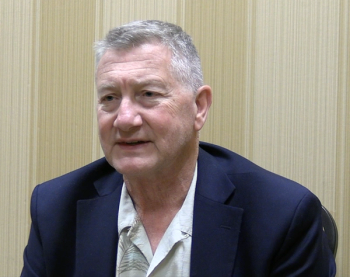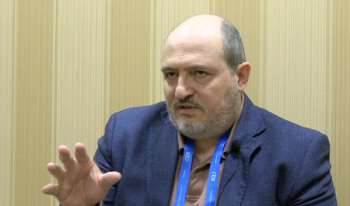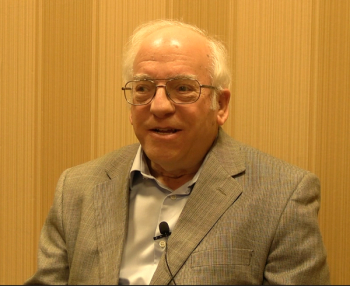
Brian J. Ford Receives the New York Microscopical Society Ernst Abbe Award
The New York Microscopical Society 2020 Ernst Abbe Award was presented to Brian J. Ford on November 17.
The New York Microscopical Society 2020 Ernst Abbe Award was presented to Brian J. Ford on Tuesday, November 17. He delivered a talk titled “The Lion, the Witch, and the Microscope.”
Ford is one of the world’s well-known microscopists. He has published 40 books, 20 of them on microscopy, and his books have appeared in 150 editions worldwide. He has also written hundreds of papers and has made important discoveries in fields ranging from hematology and cell intelligence to protozoology and plant physiology.
Ford is best known for his discovery of the original specimens sent to London by the “Father of Microbiology,” Antony van Leeuwenhoek, which had been lost for more than 300 years. He also recently identified two additional Leeuwenhoek microscopes that were not known to exist. He is a Fellow of Cardiff University, a former Fellow at The Open University, and was appointed as a visiting professor at Leicester University. Ford is also president emeritus of the Cambridge Society for the Application of Research.
Ford was awarded the inaugural August Kölher medal of the State Microscopical Society of Illinois, and recently the Royal Microscopical Society elected him an Honorary Fellow, the society’s highest honor. He has also served as a consultant for Guinness World Records and Encyclopedia Britannica, and he has hosted many programs for the BBC. He presented his own weekly BBC program, Science Now, and has also contributed to many foreign television stations.
Ford is currently a contributor to publications such as Scientific American, New Scientist, Nature, and Science Digest. His also runs a regular column called “Critical Focus,” which appears regularly in The Microscope journal.
Newsletter
Get essential updates on the latest spectroscopy technologies, regulatory standards, and best practices—subscribe today to Spectroscopy.




